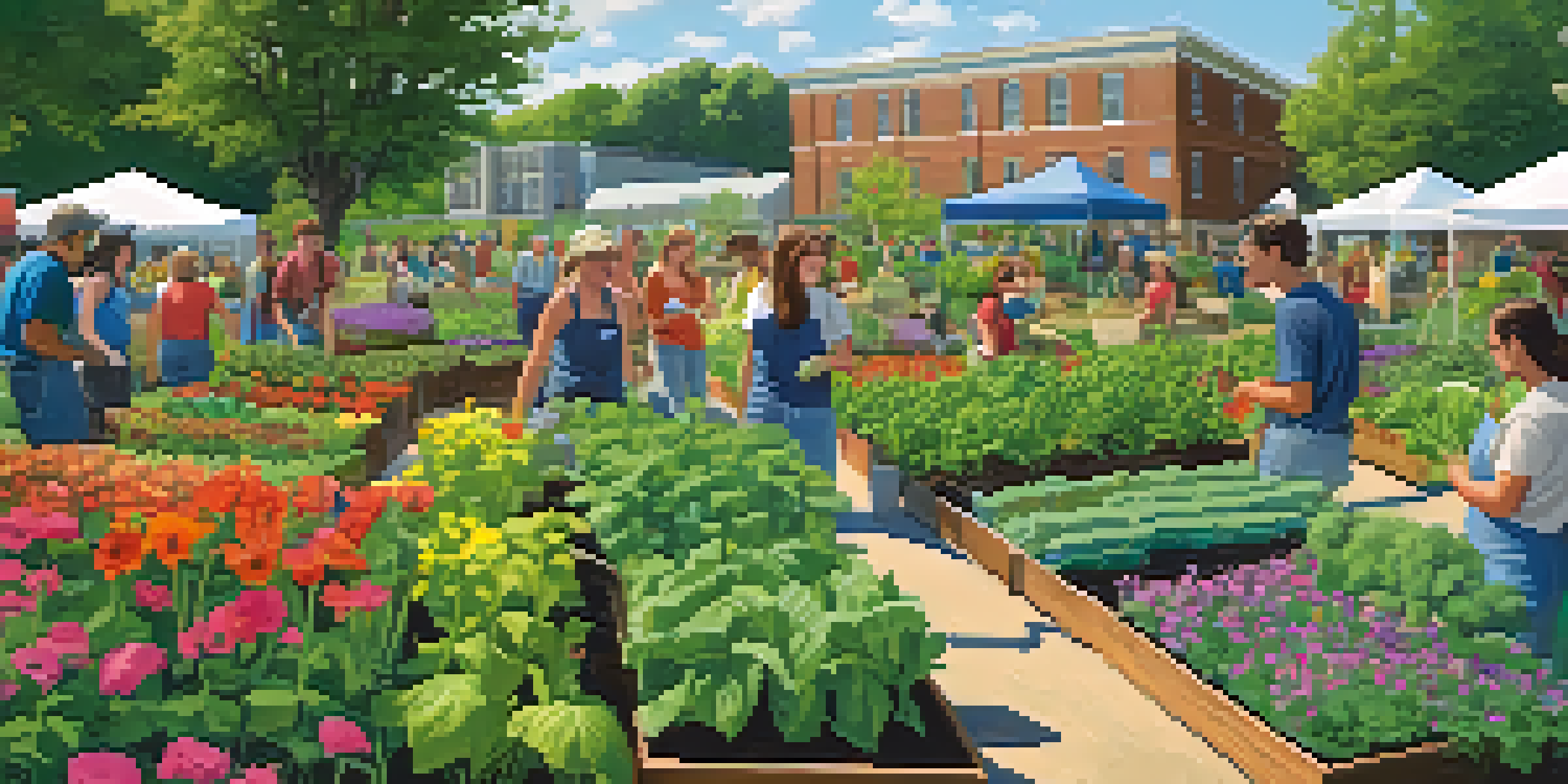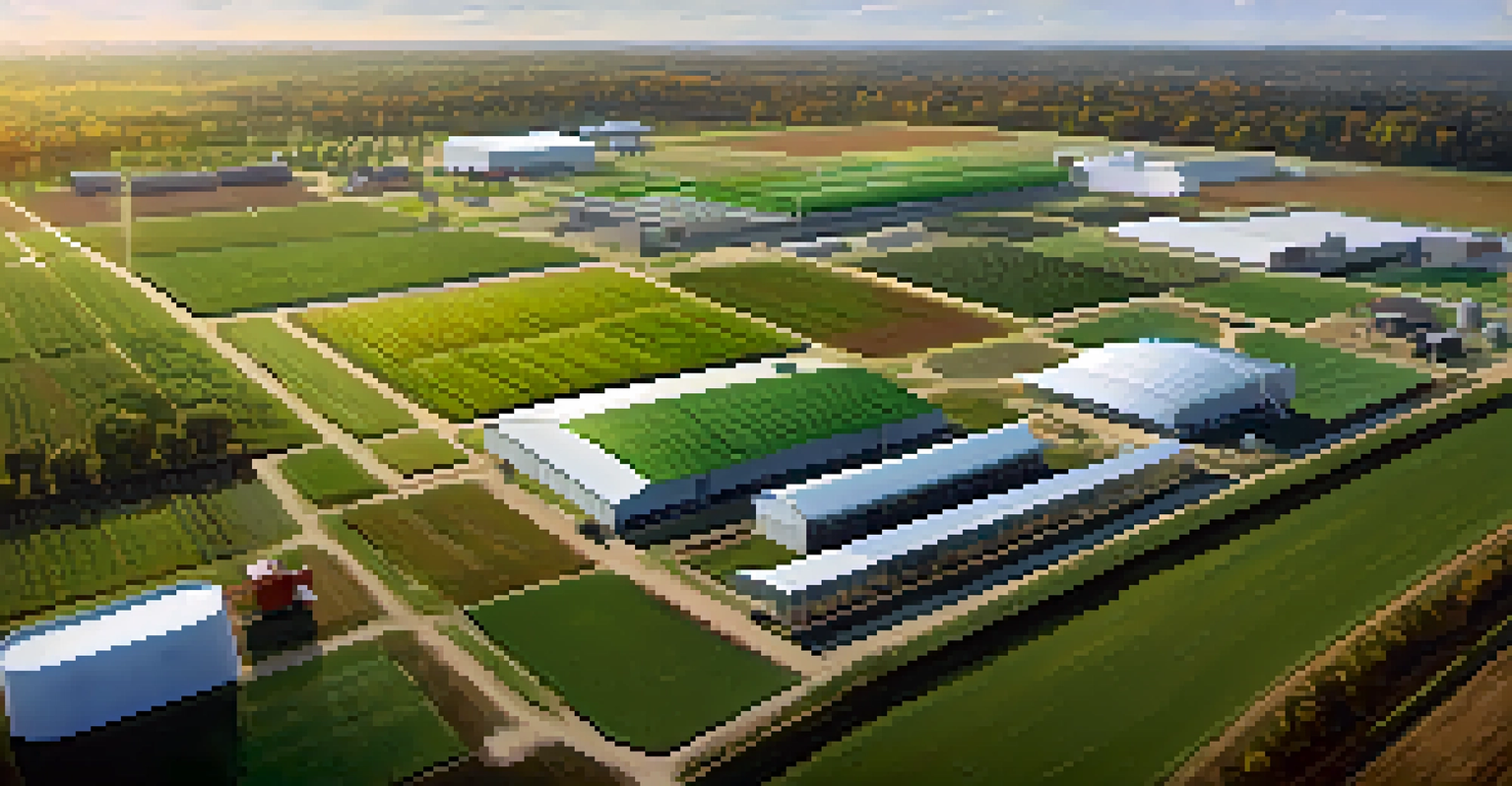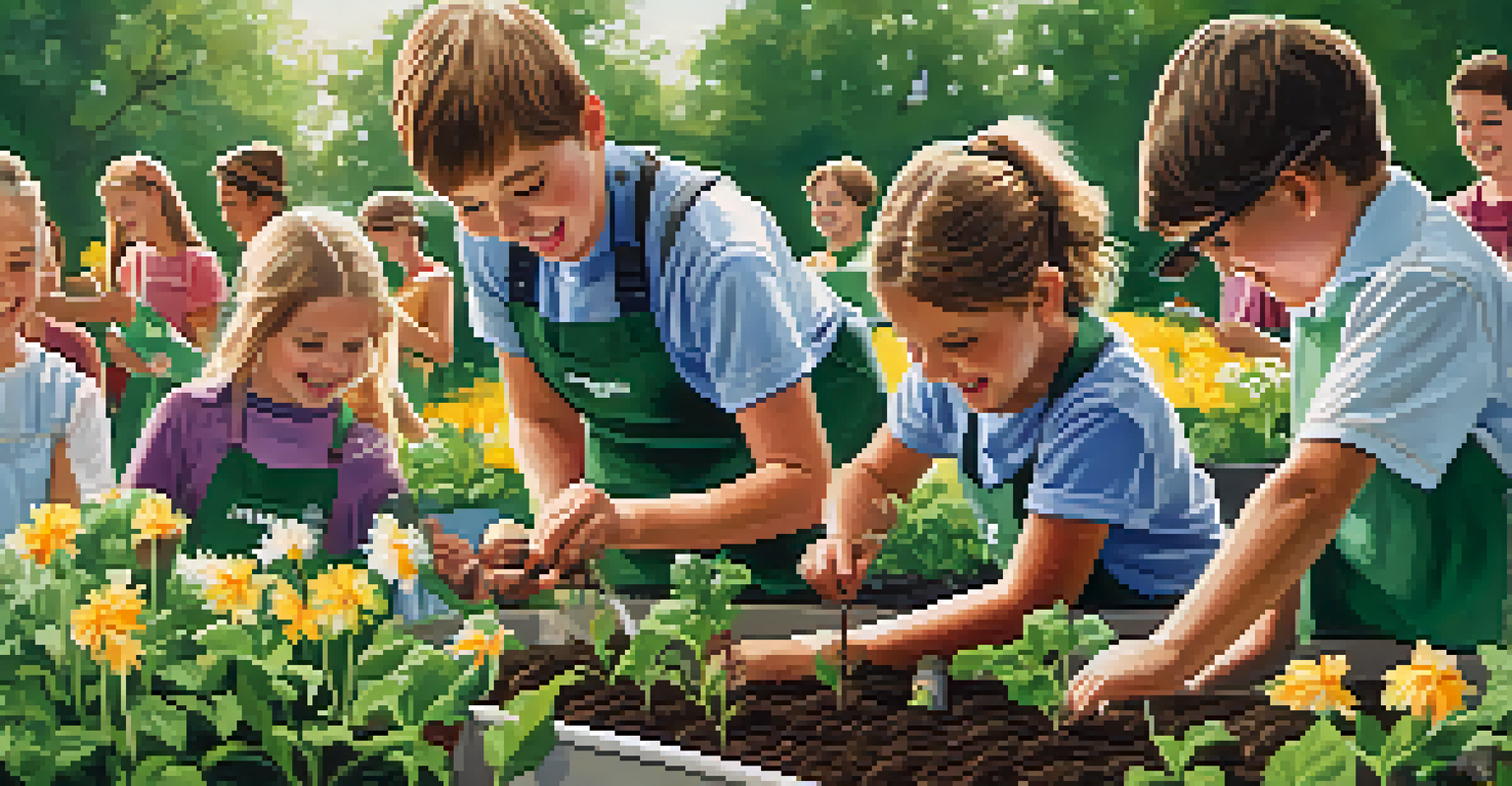Community Outreach: MSU's Role in Agricultural Education

Understanding MSU's Commitment to Agriculture
Michigan State University (MSU) has long been a pillar in agricultural education, emphasizing the importance of community outreach. By fostering strong relationships with local farmers, agricultural businesses, and educational institutions, MSU actively contributes to the advancement of sustainable agricultural practices. This commitment not only enhances the university's educational programs but also ensures that the knowledge gained is shared widely.
Agriculture is our wisest pursuit, because it will, in the end, contribute most to real wealth, good morals, and happiness.
MSU recognizes that agricultural education extends beyond the classroom walls. Through workshops, seminars, and field days, the university provides hands-on learning experiences that empower community members. These initiatives help to bridge the gap between academic research and practical application, ensuring that farmers and agricultural professionals can implement the latest techniques and innovations.
Moreover, MSU's outreach programs are designed to address the specific needs of the agricultural community. By engaging with local stakeholders, the university tailors its educational offerings to tackle pressing issues such as soil health, pest management, and climate resilience. This targeted approach not only benefits individual farmers but also enhances the overall agricultural landscape in Michigan.
Innovative Programs for Local Farmers
One of the standout initiatives from MSU is the 'Ag Innovation Hub,' which provides resources and support for local farmers looking to adopt new technologies. This program encourages farmers to experiment with innovative practices that can increase productivity while minimizing environmental impact. By facilitating access to research and expert advice, MSU empowers farmers to make informed decisions about their operations.

Additionally, MSU offers tailored workshops that focus on emerging agricultural trends such as organic farming and precision agriculture. These hands-on sessions provide farmers with valuable insights and practical skills that they can implement immediately. The goal is to equip local growers with the knowledge they need to thrive in an ever-evolving industry.
MSU Enhances Agricultural Education
Michigan State University actively promotes agricultural education through community outreach, hands-on workshops, and collaboration with local stakeholders.
The success of these programs is evident in the enthusiastic participation of local farmers. Many have reported significant improvements in their practices and yields after implementing strategies learned through MSU's outreach efforts. This positive feedback loop not only reinforces the effectiveness of the programs but also fosters a sense of community among participants.
Collaborative Research Initiatives
Collaboration is at the heart of MSU's outreach efforts in agricultural education. The university partners with various organizations, including government agencies and non-profits, to conduct research that addresses local challenges. These partnerships not only enhance the quality of research but also ensure that it is relevant and actionable for the community.
The farmer has to be an optimist or he wouldn’t still be a farmer.
For example, MSU has collaborated with the Michigan Department of Agriculture to study the impacts of climate change on crop yields. The findings from this research are shared with local farmers through community meetings and educational materials, providing them with essential information to adapt their practices accordingly. Such initiatives highlight the importance of aligning research with real-world agricultural needs.
Through these collaborative efforts, MSU cultivates a research ecosystem that benefits everyone involved. Farmers gain access to cutting-edge insights, while researchers receive valuable feedback from the field. This dynamic exchange of knowledge strengthens the agricultural community and promotes resilience in facing future challenges.
Youth Engagement in Agricultural Education
MSU recognizes the importance of engaging young people in agricultural education to ensure the future of the industry. Through programs like 4-H and various summer camps, the university introduces youth to agricultural concepts and practices. These initiatives spark interest in agriculture and encourage the next generation to consider careers in this vital field.
By providing hands-on experiences, such as planting crops and caring for livestock, MSU helps young participants develop essential skills and a deeper appreciation for agriculture. These experiences not only build confidence but also foster a sense of responsibility towards the environment and food systems. As these young individuals grow, they carry forward the lessons learned, becoming advocates for sustainable practices.
Innovative Programs for Farmers
Programs like the 'Ag Innovation Hub' empower local farmers by providing resources and support to adopt sustainable practices and new technologies.
Moreover, by involving youth in agriculture, MSU helps to cultivate future leaders who can drive innovation in the industry. Many former participants have gone on to pursue degrees in agricultural sciences and return to their communities with new ideas and practices. This cycle of engagement and education ensures that the agricultural community remains vibrant and dynamic.
Addressing Food Security through Outreach
Food security is a pressing issue that MSU takes seriously, and its outreach efforts play a crucial role in tackling this challenge. The university provides educational resources aimed at improving local food systems, from urban agriculture initiatives to community gardens. By promoting local food production, MSU helps communities become more self-sufficient and resilient.
Furthermore, MSU engages with food banks and community organizations to address hunger directly. Through workshops on food preservation and nutrition, the university equips community members with the knowledge to make the most of available resources. This approach not only helps to alleviate immediate food insecurity but also fosters long-term sustainability.
The impact of these efforts can be seen in the increased availability of fresh produce in underserved areas. By empowering individuals with the skills and knowledge to grow their own food, MSU is actively contributing to a healthier and more equitable food landscape. This commitment to food security exemplifies the university's dedication to community well-being.
Sustainability Initiatives and Best Practices
Sustainability is a core value at MSU, and its outreach programs reflect this commitment. The university provides education on sustainable farming practices that minimize environmental impact while maximizing productivity. Topics such as crop rotation, integrated pest management, and water conservation are emphasized in workshops and seminars.
By sharing these best practices, MSU helps local farmers adopt methods that are not only good for their bottom line but also for the planet. For instance, farmers who implement crop rotation can improve soil health and reduce the need for chemical fertilizers. This creates a win-win scenario where agricultural productivity is maintained, and environmental degradation is minimized.
Commitment to Food Security
MSU addresses food security by promoting local food systems and engaging communities in educational initiatives aimed at improving nutrition and sustainability.
Moreover, MSU collaborates with farmers to develop sustainable solutions tailored to local conditions. This hands-on approach ensures that the practices promoted are practical and effective in real-world scenarios. As a result, the agricultural community is better equipped to face challenges such as climate change and resource scarcity.
The Future of Agricultural Education at MSU
Looking ahead, MSU is committed to expanding its outreach efforts in agricultural education. The university plans to introduce more online resources and virtual workshops to reach a broader audience, especially in rural areas where access to education may be limited. This shift towards digital learning is aimed at ensuring that agricultural knowledge is accessible to everyone, regardless of location.
Additionally, MSU aims to strengthen its partnerships with industry leaders to provide students and community members with real-world insights and opportunities. By collaborating with agricultural businesses, the university can offer internships, mentorships, and job placements that align with current industry needs. This connection between education and employment is vital for the growth of the agricultural sector.

In conclusion, MSU's role in agricultural education through community outreach is a dynamic and evolving process. By continually adapting to the needs of the community and fostering collaboration, the university is poised to make a lasting impact on the future of agriculture in Michigan and beyond.